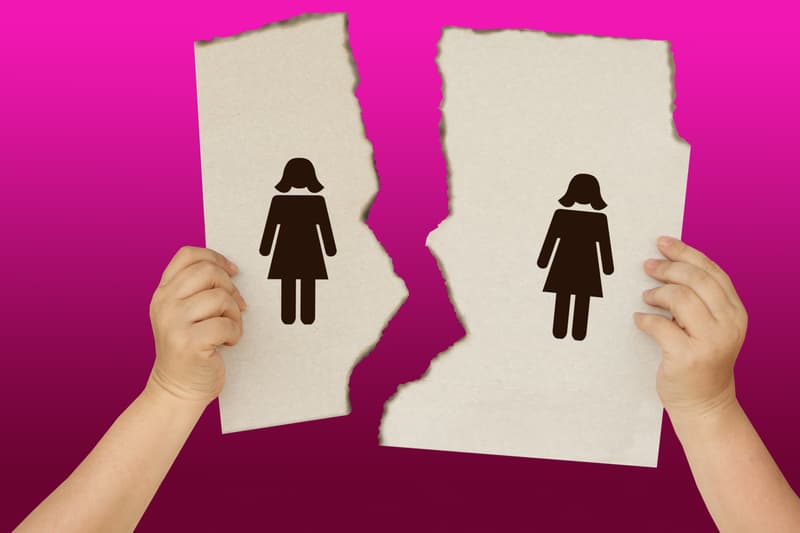Judge Walker: Prop 8 Unconstitutional
The U.S. District Court for the Northern District of California today issued its decision in Perry v. Schwarzenegger, the federal constitutional challenge to Proposition 8. The ruling is a blistering opinion that pulls together all of the developments of the three-week trial in a striking decision finding that the amendment violates both the Equal Protection and the Due Process clauses of the U.S. Constitution.
[NOTE: All of the block, or indented, quotes below come directly from the text of Judge Walker’s ruling. Internal citations to cases or other parts of the opinion have been deleted for reading ease. A pdf copy of the opinion can be found here. For further explanation of the issues discussed below, I would encourage readers to first read my “Prop 8 Decision Day FAQ.” This post was expanded throughout the two hours after its initial posting as I reviewed the opinion.]
Judge Vaughn Walker’s remedy, or solution, to the case:
Plaintiffs have demonstrated by overwhelming evidence that Proposition 8 violates their due process and equal protection rights and that they will continue to suffer these constitutional violations until state officials cease enforcement of Proposition 8. California is able to issue marriage licenses to same-sex couples, as it has already issued 18,000 marriage licenses to same-sex couples and has not suffered any demonstrated harm as a result; moreover, California officials have chosen not to defend Proposition 8 in these proceedings.
Because Proposition 8 is unconstitutional under both the Due Process and Equal Protection Clauses, the court orders entry of judgment permanently enjoining its enforcement; prohibiting the official defendants from applying or enforcing Proposition 8 and directing the official defendants that all persons under their control or supervision shall not apply or enforce Proposition 8. The clerk is DIRECTED to enter judgment without bond in favor of plaintiffs and plaintiff-intervenors and against defendants and defendant-intervenors pursuant to FRCP 58.
That enforcement of that decision, however, is stayed — or stopped — until Walker can consider arguments on whether to grant the Proposition 8 proponents motion for a stay pending their planned appeal of the decision to the U.S. Ninth Circuit Court of Appeals.
* * * * *
The key “Findings of Fact,” as determined by Walker, and split into three broad categories by me:
Marriage
- Religious leaders may determine independently whether to recognize a civil marriage or divorce but that recognition or lack thereof has no effect on the relationship under state law.
- Many states, including California, had laws restricting the race of marital partners so that whites and non-whites could not marry each other.
- Under coverture, a woman’s legal and economic identity was subsumed by her husband’s upon marriage. The husband was the legal head of household. Coverture is no longer part of the marital bargain.
- California has eliminated marital obligations based on the gender of the spouse. Regardless of their sex or gender, marital partners share the same obligations to one another and to their dependants. As a result of Proposition 8, California nevertheless requires that a marriage consist of one man and one woman.Eliminating gender and race restrictions in marriage has not deprived the institution of marriage of its vitality.
- Marriage benefits both spouses by promoting physical and psychological health. Married individuals are less likely to engage in behaviors detrimental to health, like smoking or drinking heavily. Married individuals live longer on average than unmarried individuals.
Sexual Orientation
- Sexual orientation is commonly discussed as a characteristic of the individual. Sexual orientation is fundamental to a person’s identity and is a distinguishing characteristic that defines gays and lesbians as a discrete group. Proponents’ assertion that sexual orientation cannot be defined is contrary to the weight of the evidence.
- Individuals do not generally choose their sexual orientation. No credible evidence supports a finding that an individual may, through conscious decision, therapeutic intervention or any other method, change his or her sexual orientation.
- Same-sex couples are identical to opposite-sex couples in the characteristics relevant to the ability to form successful marital unions.
- Permitting same-sex couples to marry will not affect the number of opposite-sex couples who marry, divorce, cohabit, have children outside of marriage or otherwise affect the stability of opposite-sex marriages.
- Gays and lesbians have been victims of a long history of discrimination.
- Well-known stereotypes about gay men and lesbians include a belief that gays and lesbians are affluent, self-absorbed and incapable of forming long-term intimate relationships. Other stereotypes imagine gay men and lesbians as disease vectors or as child molesters who recruit young children into homosexuality. No evidence supports these stereotypes.
Proposition 8
- Proposition 8 places the force of law behind stigmas against gays and lesbians, including: gays and lesbians do not have intimate relationships similar to heterosexual couples; gays and lesbians are not as good as heterosexuals; and gay and lesbian relationships do not deserve the full recognition of society.
- Proposition 8 amends the California Constitution to codify distinct and unique roles for men and women in marriage.
- Proposition 8 singles out gays and lesbians and legitimates their unequal treatment. Proposition 8 perpetuates the stereotype that gays and lesbians are incapable of forming long-term loving relationships and that gays and lesbians are not good parents.
- The Proposition 8 campaign relied on fears that children exposed to the concept of same-sex marriage may become gay or lesbian. The reason children need to be protected from same-sex marriage was never articulated in official campaign advertisements. Nevertheless, the advertisements insinuated that learning about same-sex marriage could make a child gay or lesbian and that parents should dread having a gay or lesbian child.
* * * * *
The key portions of Walker’s “Conclusions of Law“:
The main point
Proposition 8 both unconstitutionally burdens the exercise of the fundamental right to marry and creates an irrational classification on the basis of sexual orientation.
Due Process, or the fundamental right to marry
The parties do not dispute that the right to marry is fundamental. The question presented here is whether plaintiffs seek to exercise the fundamental right to marry; or, because they are couples of the same sex, whether they seek recognition of a new right.
The right to marry has been historically and remains the right to choose a spouse and, with mutual consent, join together and form a household. Race and gender restrictions shaped marriage during eras of race and gender inequality, but such restrictions were never part of the historical core of the institution of marriage. Today, gender is not relevant to the state in determining spouses’ obligations to each other and to their dependents. Relative gender composition aside, same-sex couples are situated identically to opposite-sex couples in terms of their ability to perform the rights and obligations of marriage under California law. Gender no longer forms an essential part of marriage; marriage under law is a union of equals.
Plaintiffs do not seek recognition of a new right. To characterize plaintiffs’ objective as “the right to same-sex marriage” would suggest that plaintiffs seek something different from what opposite-sex couples across the state enjoy — namely, marriage. Rather, plaintiffs ask California to recognize their relationships for what they are: marriages.
The evidence at trial shows that domestic partnerships exist solely to differentiate same-sex unions from marriages. . . . California does not meet its due process obligation to allow plaintiffs to marry by offering them a substitute and inferior institution that denies marriage to same-sex couples.
Equal Protection, or the irrational classification based on sexual orientation
Most laws subject to rational basis easily survive equal protection review, because a legitimate reason can nearly always be found for treating different groups in an unequal manner. Yet, to survive rational basis review, a law must do more than disadvantage or otherwise harm a particular group.
The following three questions are the main inquiries that Walker had to consider before deciding the outcome of the Equal Protection challenge.
What type of classification is this?
Sexual orientation discrimination can take the form of sex discrimination. . . . Sexual orientation discrimination is thus a phenomenon distinct from, but related to, sex discrimination.
Homosexual conduct and identity together define what it means to be gay or lesbian. Indeed, homosexual conduct and attraction are constitutionally protected and integral parts of what makes someone gay or lesbian (citing Lawrence v. Texas and Christian Legal Society v Martinez).
[T]he court determines that plaintiffs’ equal protection claim is based on sexual orientation, but this claim is equivalent to a claim of discrimination based on sex.
What standard of review should be used?
Although Proposition 8 fails to possess even a rational basis, the evidence presented at trial shows that gays and lesbians are the type of minority strict scrutiny was designed to protect.
The trial record shows that strict scrutiny is the appropriate standard of review to apply to legislative classifications based on sexual orientation. All classifications based on sexual orientation appear suspect, as the evidence shows that California would rarely, if ever, have a reason to categorize individuals based on their sexual orientation. Here, however, strict scrutiny is unnecessary. Proposition 8 fails to survive even rational basis review.
Proposition 8 cannot withstand any level of scrutiny under the Equal Protection Clause, as excluding same-sex couples from marriage is simply not rationally related to a legitimate state interest.
What about the purported state interests claimed by the proponents?
The evidence shows that the state advances nothing when it adheres to the tradition of excluding same-sex couples from marriage. Proponents’ asserted state interests in tradition are nothing more than tautologies and do not amount to rational bases for Proposition 8.
Because the evidence shows same-sex marriage has and will have no adverse effects on society or the institution of marriage, California has no interest in waiting and no practical need to wait to grant marriage licenses to same-sex couples.
The only rational conclusion in light of the evidence is that Proposition 8 makes it less likely that California children will be raised in stable households.
Proposition 8 does not affect any First Amendment right or responsibility of parents to educate their children.
Many of the purported interests identified by proponents are nothing more than a fear or unarticulated dislike of same-sex couples. Those interests that are legitimate are unrelated to the classification drawn by Proposition 8.
In the absence of a rational basis, what remains of proponents’ case is an inference, amply supported by evidence in the record, that Proposition 8 was premised on the belief that same-sex couples simply are not as good as opposite-sex couples. Whether that belief is based on moral disapproval of homosexuality, animus towards gays and lesbians or simply a belief that a relationship between a man and a woman is inherently better than a relationship between two men or two women, this belief is not a proper basis on which to legislate.
* * * * *
After all that, Walker concludes:
Proposition 8 fails to advance any rational basis in singling out gay men and lesbians for denial of a marriage license. Indeed, the evidence shows Proposition 8 does nothing more than enshrine in the California Constitution the notion that opposite-sex couples are superior to same-sex couples. Because California has no interest in discriminating against gay men and lesbians, and because Proposition 8 prevents California from fulfilling its constitutional obligation to provide marriages on an equal basis, the court concludes that Proposition 8 is unconstitutional.
* * * * *
Here is the decision: Perry Trial Decision.pdf
Support Metro Weekly’s Journalism
These are challenging times for news organizations. And yet it’s crucial we stay active and provide vital resources and information to both our local readers and the world. So won’t you please take a moment and consider supporting Metro Weekly with a membership? For as little as $5 a month, you can help ensure Metro Weekly magazine and MetroWeekly.com remain free, viable resources as we provide the best, most diverse, culturally-resonant LGBTQ coverage in both the D.C. region and around the world. Memberships come with exclusive perks and discounts, your own personal digital delivery of each week’s magazine (and an archive), access to our Member's Lounge when it launches this fall, and exclusive members-only items like Metro Weekly Membership Mugs and Tote Bags! Check out all our membership levels here and please join us today!
























